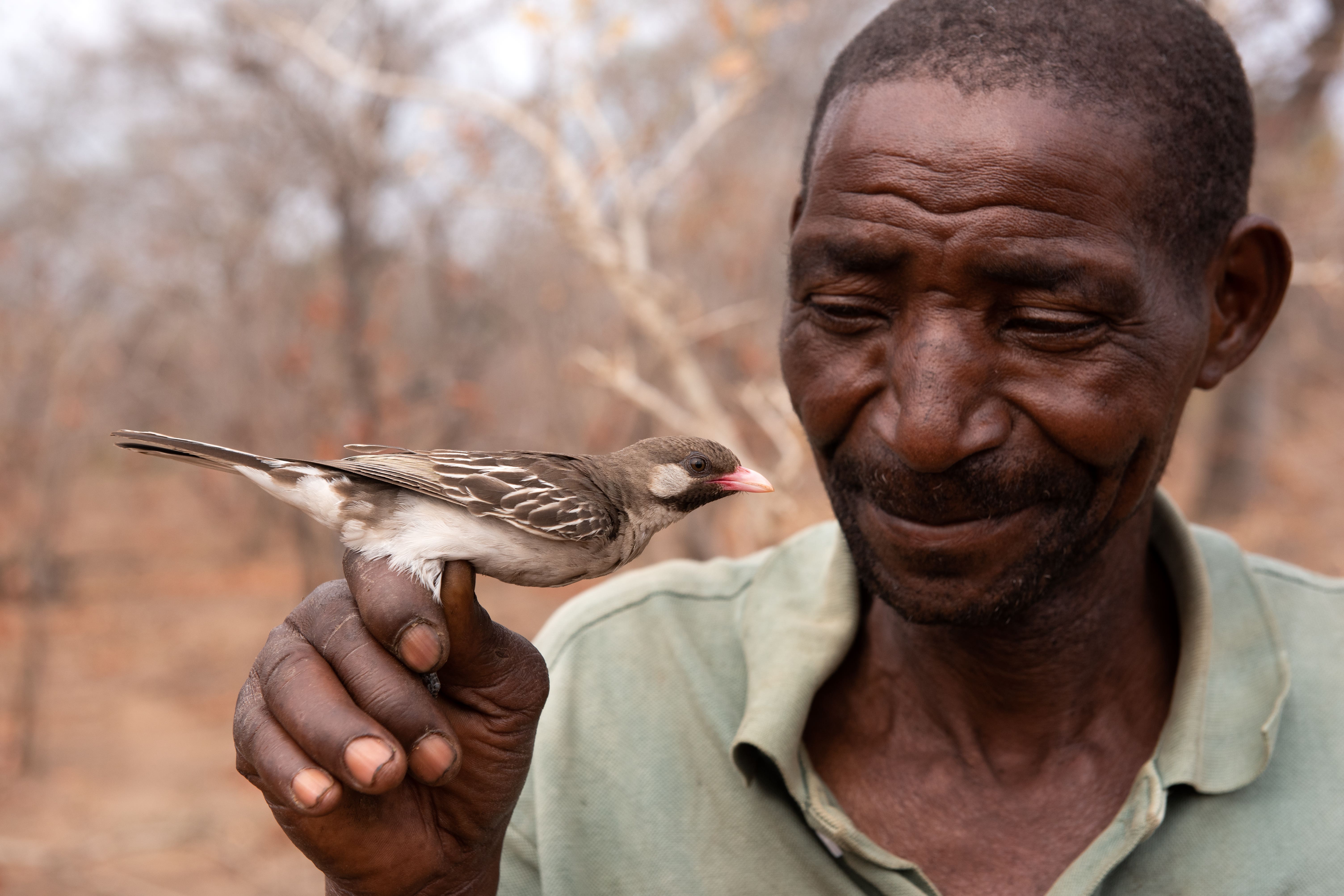Wild birds ‘distinguish between calls made by different African tribes’ – study
Greater honeyguides respond more readily to calls made by certain African tribespeople than those made by a different tribe.

Your support helps us to tell the story
From reproductive rights to climate change to Big Tech, The Independent is on the ground when the story is developing. Whether it's investigating the financials of Elon Musk's pro-Trump PAC or producing our latest documentary, 'The A Word', which shines a light on the American women fighting for reproductive rights, we know how important it is to parse out the facts from the messaging.
At such a critical moment in US history, we need reporters on the ground. Your donation allows us to keep sending journalists to speak to both sides of the story.
The Independent is trusted by Americans across the entire political spectrum. And unlike many other quality news outlets, we choose not to lock Americans out of our reporting and analysis with paywalls. We believe quality journalism should be available to everyone, paid for by those who can afford it.
Your support makes all the difference.Humans can sweet-talk birds into helping them find honey but they need to know what type of call to make – be it a loud trill and a grunt or a melodic whistle.
Greater honeyguides – small brown birds found in Africa – engage in a two-way conversation with local honey-hunting tribespeople as part of a team effort to uncover where the best beehives are hidden.
Scientists from the University of Cambridge have found that different tribespeople in Africa use different calls to communicate with honeyguides, and the birds respond much more readily to locals than to foreign calls.
In return for revealing the location of honey stashes, the honeyguides are rewarded with the leftover beeswax.
Scientists say that this relationship between honeyguides and honey hunters is a rare example of co-operation between humans and wild animals.
Dr Claire Spottiswoode, an evolutionary biologist at the University of Cambridge and the University of Cape Town, said: “We found that honeyguides prefer the calls given by their local human partners, compared to foreign calls and arbitrary human sounds.
“This benefits both species, since it helps honey hunters attract a honeyguide to show them hard-to-find bees’ nests, and helps honeyguides to choose a good partner to help them to get at the wax.”
The researchers said that Hadza honey hunters in Tanzania communicate with the birds using a melodic whistle, whereas Yao honey hunters in Mozambique use a trill followed by a grunt.
Experiments have shown that honeyguides in Tanzania are more than three times more likely to help people giving the local Hadza whistle than those giving the foreign Yao trill and grunt.
Similarly, honeyguides in Mozambique are almost twice as likely to co-operate when they hear the local Yao trill and grunt as opposed to the Hadza whistle.
The scientists also found that those who use a completely different call are less likely to attract a bird to help them find honey.
The researchers said the exchange of calls between birds and humans are culturally determined, “signalling a desire to partner with the bird to find honey”.
Dr Brian Wood, an anthropologist at the University of California, Los Angeles, said: “Once these local cultural traditions are established, it pays for everyone – birds and humans – to conform to them, even if the sounds themselves are arbitrary.”
Dr Spottiswoode added: “What’s remarkable about the honeyguide-human relationship is that it involves free-living wild animals whose interactions with humans have evolved through natural selection, possibly over the course of hundreds of thousands of years.
She added: “This ancient, evolved behaviour has then been refined to local cultural traditions – the different human call sounds – through learning.”
The research is published in the journal Science.